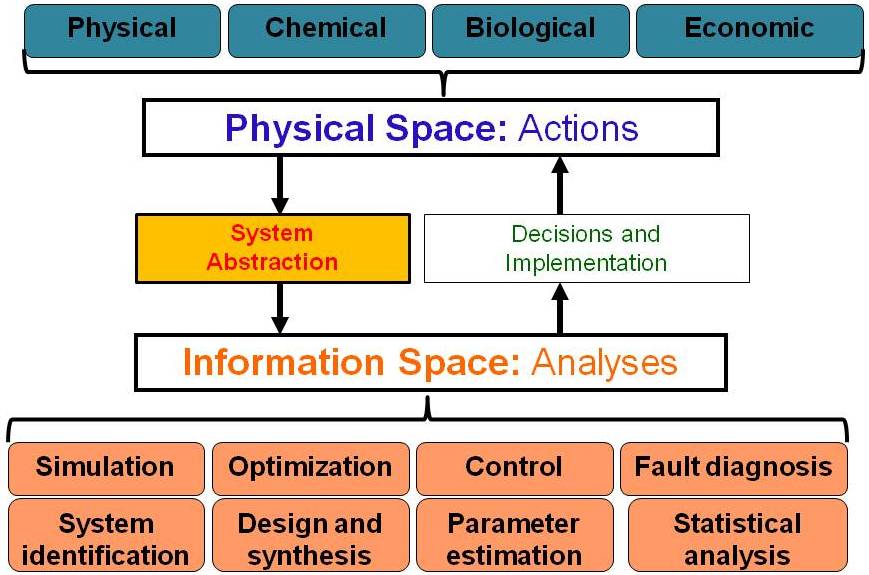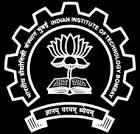A

Sustainability and Sustainable Development

Systems theory based tools and their role in addressing complex multi-scale sustainable development issues
The major research themes of our laboratory are:
-
Second generation biofuels and value added products from lignocellulosic feedstock:
The production of biofuels and value added chemicals for renewable, lignocellulosic biomass feedstock such as agricultural residue, dedicated energy crops, and forestry based biomass has been proposed as a sustainable option. However, several challenges need to be addressed to make these biomass based systems techno-economically feasible. Our research group has taken a multi-pronged approach by addressing research problems at different scales. This includes process design, process integration, and supply chain management. Specific projects currently underway in this area are:
1. Stochastic modeling and optimization of lignocellulosic biomass pre-treatment for biochemical processing (DST)
2. Stochastic modeling and optimization of enzymatic hydrolysis of lignocellulosic biomass (DST)
3. Model based optimization of integrated lignocellulosic biorefinery (DBT)
4. Integrated prouduction of first and second generation biofuels using mass and heat integration
5. Optimal design of biomass to biofuel supply chain for cost efficiency and resiliency -
Third generation biofuels and value added products from microalgae:
Microalgae can be a source of biofuels and is part of the so called third generation of biofuels. Microalgae has several advantages as compared to terrestrial crops as a source of biofueld. These include high productivity per unit area, ability to use degraded or non-agricultural and saline water, as well as the ability to sequester carbon di oxide and waste water nutrients. However, Achieving techno-economic feasibility and overall sustainability of the microalgal bioenergy systems is critical for large scale, commercial success of algal bioenergy. It is currently well known that the production of fuels and value added products from algae is environmentally beneficial but economically non-profitable. Our research group has undertaken several projects to ultimately achieve a commercially viable microalgal biorefinery system. These are:
1. Model based optimization of integrated algal biorefinery for production of fuel and value added products
2. Model based advanced control of batch transesterification reactor for biodiesel production (DBT)
3. Technology package development for selected micro-algae and post harvest Processing for biodiesel synthesis and dissemination (DBT)
3. Modeling of hydrothermal liquifaction of microalgae for the production of biocrude
4. Computational fluid dynamic modeling and optimization of algae photobioreactor for yield improvement -
Utilization of municipal solid waste for energy production:
Municipal solid waste (MSW) is a major environmental and health concern in most of the medium to large cities in the developed as well as developing countries. Safe and sustainable disposal of the waste is necessary. Moreover, the recovery of any value added commodities as part of the waste disposal processes is also highly desirable. Thermochemical treatment of MSW, which includes processes from simple incineration to large scale gasification, have been proposed and also implemented at various places. However, these have not been successful and significant improvements in reactor design and operations are required. The projects currently underway in this area are:
1. Design and optimization of thermochemical treatment of mixed municipal solid waste -
Optimization and optimal control problem solution:
Our group is also working on developing novel and more efficient methods to solve optimization and control problems. Specifically, we are looking at developing novel decomposition based approached to solve large scale mixed integer linear programming problems. Such problems are often encountered in supply chain optimization. We are also working on developing more efficient methods to solve stochastic optimal control problems that would be encountered in real plants dealing with uncertain feedstock composition and other such variabilities. The specific project topics are:
1. Decomposition based approach to solve large scale biomass-to-biofuel supply chain problem
2. Comparison and improvement of stochastic optimal control methods -
Post-harvest loss prevention in agricultural supply chains:
Worldwide it is estimated that one third of food is lost on average, although estimates have been reported to be as high as 50%. In the U.S. and other developed countries, losses primarily occur at the retail outlet and with the consumer due to exceedingly high quality requirements, whereas in the developing world, significant losses are occurring at the producer, storage, and transit stages. Up to 34% is reported to be lost in rice and wheat in India, attributed mostly to losses at the farm and during storage. Our goal is to using optimization techniques to determine optimal agricultral supply chain designs and operating strategies so as to minimize post harvest loss of grains. (ADM Institute) -
Water pollution management of bioaccumulative chemicals:
Bioaccumulative chemicals such as mercury, PCB, arsenic, and lead have been recognized as a global threat to our ecosystem, and are fast becoming a major concern to environmentalists and policy makers. They can cycle in the environment in all media as part of both natural and anthropogenic activities. Once present in water, they are highly dangerous not only to the aquatic communities, but also to humans through direct and indirect effects. These chemicals accumulates up the aquatic food chains, so that organisms in higher trophic levels (e.g. fishes) have higher concentrations. This leads to several ill effects not only to those aquatic organisms but also to humans who consume these contaminated fishes. Our goal is to use systems based approaches such as control theory to explore minimization of bioaccumulation. The ongoing project in this area is:
1. Bioaccumulation mitigation using food web population dynamics control
Funding sources:
-
Industrial Research and Consulting Center, Indian Institute of Technology Bombay
-
Department of Science and Technology (DST), Government of India
-
Department of Biotechnology (DBT), Government of India
-
ADM Institute for the Prevention of Post-harvest Loss, University of Illinois at Urbana-Champaign, USA
-
IITB-Monash Research Academy, Indian Institute of Technology Bombay and Monash University, Australia
